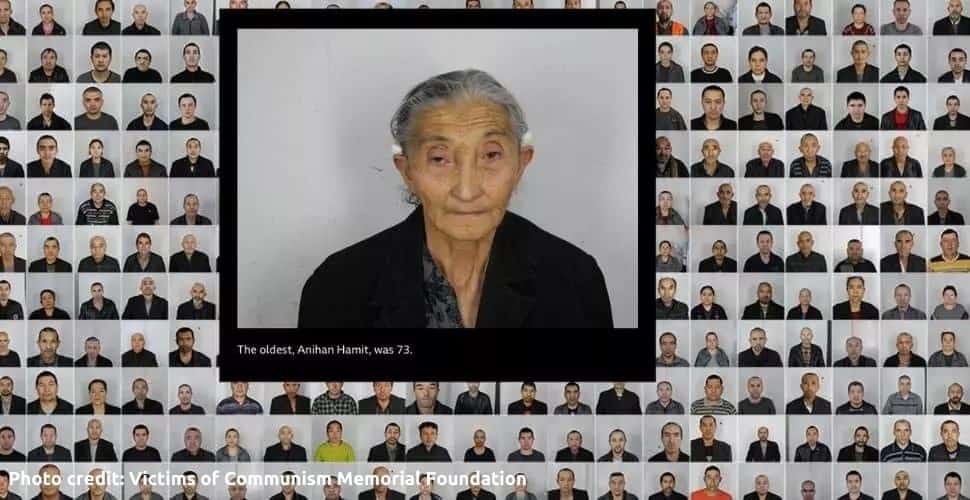The faces from China’s Uyghur detention camps

Working with a consortium of 14 media organizations from 11 countries, the BBC has been able to authenticate significant elements of the Xinjiang Police Files. The hacked files contain more than 5,000 police photographs of Uyghurs taken between January and July 2018, as well as hundreds of pieces of evidence of arbitrary detention, torture, and forced labor, among other forms of exploitation and abuse.
The Chinese government can no longer hide the obvious – the evidence is compelling and chilling. The government's claim that the re-education camps built throughout the Uyghur region since 2017 are nothing more than “schools” is contradicted by internal police instructions, lists of guards, and never-before-seen images of detainees.
China's so-called “re-education centers” are torture centers: the evidence
The photographs give human form to a policy designed to deliberately target Uyghur families as a repository of identity and culture and – in the Chinese government's words – to “break their roots, break their lineage, break their connections, break their origins.” The documents provide some of the strongest evidence to date of a systematic genocide, of which the chain of command goes all the way up to the Chinese leader himself, Xi Jinping.
Dr. Adrian Zenz, one of the key researchers involved in the Xinjiang Police Archives project at the US-based Victims of Communism Memorial Foundation, told the press:
“We have confidential documents. We have transcripts of speeches where leaders speak freely about what they really think. We have spreadsheets. We have pictures. It's completely unprecedented and blows the Chinese propaganda veneer out of the water.”
A set of internal police protocols describes the routine use of armed officers in all areas of the camps, the placement of machine guns and sniper rifles in guard towers, and the existence of a shoot-to-kill policy for those who try to escape. The leaked photos show that blindfolds, handcuffs, and shackles are mandatory for any “student” transferred between facilities or even to the hospital. The international community cannot sustain any more doubts.
Chinese persecution and the “crime” of being a minority
The leaks reveal hundreds of examples of people who have been punished and retrospectively blamed for “terrorism offenses” that took place years or even decades ago: one man was jailed for 10 years in 2017 for having “studied Islamic scriptures with his grandmother” for a few days in 2010.
They also reveal charges of “guilt by association.” The documents describe how a woman was punished with 10 years in prison because her son had a “strong religious inclination” because he did not drink alcohol or smoke. She, too, is considered a terrorist by the regime.
Children separated from their parents
The leaked photos also include children and adolescents. Not many details exist regarding the fate of these children whose parents have been detained. It is likely that a significant number of them have been placed under the permanent, long-term care of a system of state-run boarding schools built throughout the Uyghur region at the same time that the camps were.
Indeed, Uyghurs abroad have told the BBC that the shaved heads in many of the pictures is a sign that many are forced to attend these schools at least during the week, even if they remain in the care of one or both parents.
The Chinese government continues to deny the obvious
The investigative news consortium contacted the Chinese government for comment on this data leak, and with detailed questions about the evidence it contains. The Chinese embassy in Washington DC gave the following response: “Issues related to Xinjiang are essentially about countering violent terrorism, radicalization and separatism, and not about human rights or religion.”
In the statement, the embassy added that the Chinese authorities had taken “a series of decisive, robust and effective de-radicalization measures…The region now enjoys social stability and harmony, as well as economic development,” and claimed that this statement is “the most powerful response to all kinds of lies and misinformation about Xinjiang.”
The embassy did not respond to any of the specific evidence from the leak.
The release of this material coincides with the arrival in China of UN Human Rights Commissioner Michelle Bachelet for a long-awaited visit to the Uyghur region. In an article in the Guardian, it was noted that her itinerary will be under strict government control and we are concerned her visit will be severely limited by authorities.
Together with a consortium of 60 organizations, we signed a joint statement in April calling on Bachelet to provide a coherent response to the human rights crisis in China. Let's continue to raise awareness. Sign the petition and demand that the international community do whatever it takes to end the genocide and forced labor of Uyghurs and other ethnic minorities in China.
Chip in and help end modern slavery once and for all.
This “Eyes on Trafficking” story is reprinted from the United Nations Office on Drugs and Crime.
ABOUT PBJ LEARNING
PBJ Learning is a leading provider of online human trafficking training, focusing on awareness and prevention education. Their interactive Human Trafficking Essentials online course is being used worldwide to educate professionals and individuals how to recognize human trafficking and how to respond to a potential victim. Their online human trafficking course is available for use on any web browser (even your mobile phone) at any time.
More stories like this can be found in your PBJ Learning Knowledge Vault.
